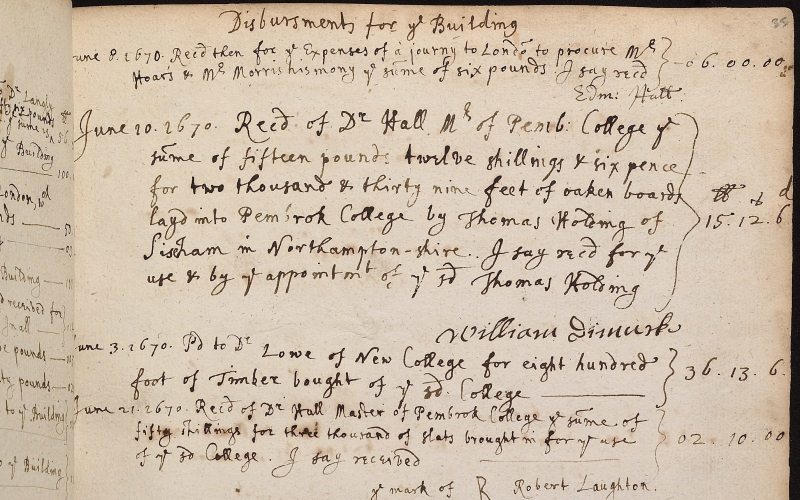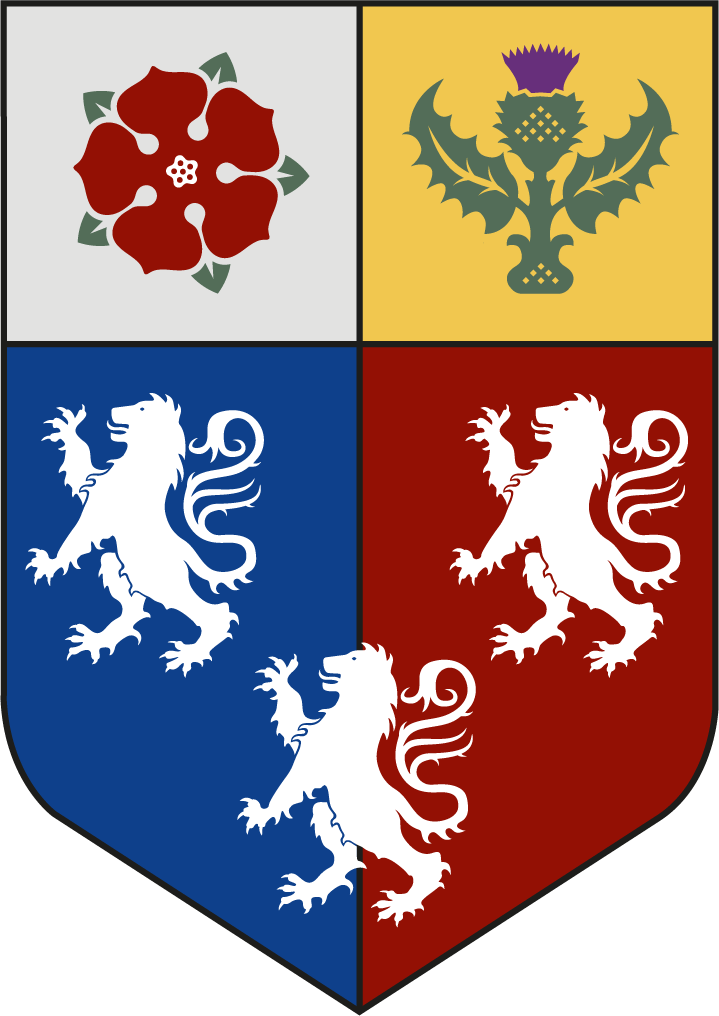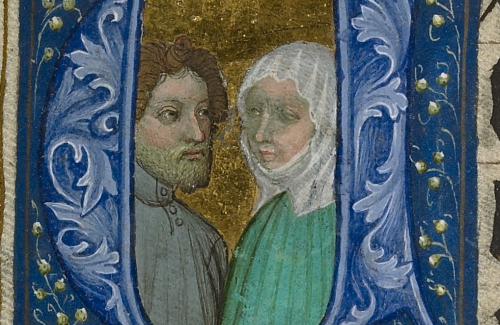#18 Master's Account Book
This manuscript is one of the many handwritten items contained in the archive. Most of the early material we have on Pembroke's history was written out by College staff.
This one is part of a wider collection of Account books, kept by the Master of Pembroke. It was digitised in 2009 and is available on Digital Bodleian (link in bio)
1. This book covers the period 1650 to 1795
2. It is written on paper and bound in parchment
3. The volume is 550 by 230mm
4. Primarily financial, the account book includes a wide variety of payments for academic, domestic and building matters.
5. There are also records of battels paid, and rents coming in from properties owned by the college. "Received of Mr Yorke of Can Court, four score and two pounds and ten shillings for half a year's rent due at the Lady Day next ensuing after the date hereof". Can Court was an estate in Wiltshire owned by the College.
6. Entries are often formulaic but can still be hard to decipher and are sometimes downright mysterious like this one from 1656 "Received of Dr Langley for two Hungarians the sum of five shillings when the Vice Chancellor sent Thomas his man to the college for something"
7. There are a wide variety of domestic and building payments including the receipt of a payment to Alen Kibble in 1652 for "all coales served in for the use of the Coll from the beginning of the world to the date hereof"
8. Building accounts include the construction of Old Quad and the Chapel, detailing payments to individual tradesmen for goods and services including masonry, lime and hair, plastering, ironmongery, windows and casements, wood and carpentry, gravel, hauling away rubble and, most importantly, beer for the labourers!
9. Academic accounts include the receipt of scholarship payments and payments for teaching and exams, for example this entry from 1660: "Received then of Dr Langley for reading the Greek lecture three terms ending with Easter term last past the sum of thirty shillings"
10. We can use the account book to tell what was happening in the library during the period. In 1654, a smith was paid 1d8s for ‘chynning’ (chaining) library books.


